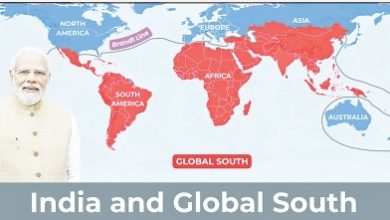More clinics in now Tanzania, don’t fall behind

DAR ES SALAAM: WHEN a nation translates a book, it is not just an exercise in linguistics, it is a strategic move, a handshake of ideas.
And so, it was last weekend in Tanzania, when the Chinese Embassy, in partnership with Mkuki na Nyota Publishers, unveiled the Swahili version of Chinese President Xi Jinping’s book “Up and Out of Poverty” (Kupambana na Kuondokana na Umaskini) during a well-attended symposium in Dar es Salaam.
This was not just average diplomatic token. It was a manual of lessons, a memoir of applied strategy, and an ideological toolkit that Tanzanians can now read, digest, critique, and hopefully implement, one chapter at a time.
Originally penned be- tween 1988 and 1990, when Xi Jinping served as Party Secretary in Ningde, a once impoverished region of China’s Fujian Province, Up and Out of Poverty is a collection of 29 speeches and research reports that detail how President Xi tackled poverty in real-time.
The philosophies are re- freshingly practical: “Allevi- ate poverty by building confidence and skills,” he says in one chapter.
In another, the famously poetic Chinese idiom appears: “Dripping water can drill through rock.”
It is a powerful metaphor for persistence or as Tanzanians would say, “Mvumilivu hula mbivu.”
The Swahili translation is more than an exercise in cultural exchange; kit is an opportunity.
An opportunity for Tanzanians to read, in a language that resonates deeply, how another developing country broke through one of humanity’s oldest shackles: extreme poverty.
During the launch, Chinese Ambassador to Tanzania, Amb. Chen Mingjian, spoke plainly: “The world is changing fast, but the Sustainable Development Goals are lagging behind.
The development gap between the Global North and South re- mains stubbornly wide.” She was right.
And that is what makes this book relevant, not just for academicians or government officials, but for farmers in Tabora, entrepreneurs in Arusha, and local leaders across the country.
Ambassador Chen emphasized that China’s experience belongs not just to China, but to the world and that Tanzania, in particular, is seen as a vital partner in this shared mission.
What sets Up and Out of Poverty apart from other political literature is that it doesn’t float in high-minded abstraction.
President Xi’s book discusses how to mo- bilize people, tailor policies to local realities, and ensure no region or individual is left behind a phrase that finds perfect harmony with Tanzania’s own social values.
China’s poverty strategy was not just about handing out aid. It was about building skills, transferring technology, increasing access to infrastructure, and fostering industries. Sound familiar? It should.
Tanzania is already working along similar lines, but now, thanks to this book, it has a front row seat to China’s version of the playbook.
Poverty begins in the mind Attending the launch, Former CCM Secretary General Wilson Mukama put it plainly during the event: “Af- rica’s battle against poverty must begin in the mind.”
He warned against “copy-paste” development models and stressed the importance of context ualizing strategies to local conditions.
He was right. And that is precisely what Xi Jinping did in Ningde. Rather than impose generic solutions, he advocated for tailor-made policies, community participation, and mindset transformation.
It is no wonder the phrase “build confidence and skills” appears repeatedly in the book because without self-belief and practical know-how, policies are just paperwork.
Tanzania must extend its heartfelt thanks to the Chinese Embassy for supporting the Kiswahili translation of this impactful work. Here are why these matters: Broader Accessibility.
Not everyone reads English. By translating this into Kiswahili, farmers, civil servants, students, and community leaders can now access a global perspective in their native tongue.
Local Ownership of Ideas: Development is not imported, it is localized. Reading this book in Kiswahili enables Tanzanians to relate to the ideas culturally and contextually.
Educational Resource: This book is a ready-made case study for schools, universities, and public training programs. Imagine students in Dodoma analyzing Fujian’s transformation and comparing it to Lindi or Simiyu.
Policy Inspiration: Local leaders and planners can now draw practical parallels be- tween China’s poverty strategies and Tanzania’s current development efforts.
It’s like borrowing someone’s home work legally and with gratitude. China’s commitment to Tanzania goes far beyond translation.
From the Standard Gauge Railway (SGR) to the Julius Nyerere Hydropower Station, Chinese involvement in Tanzania’s economic transformation is evident.
Projects like the “Small Technology, Big Harvest” in Morogoro or “Small Bean, Big Nutrition” are quietly transforming agriculture, while zero tariff treatment is opening up new export opportunities for Tanzanian honey, avocados, and wild fish.
Former publisher Walter Bgoya reminded the par- ticipants that “miracles don’t fall from the sky; they start with visionary leadership.”
Tanzania has that. And now, with this book, it has a proven toolkit. A book, but also a bridge The hope is that Kupambana na Kuondokana na Umaskini becomes more than a text on the shelf.
It should be a catalyst for discussion, a resource for learning, and a symbol of shared commitment between two nations with a mutual vision: to eradicate poverty, foster prosperity, and build a more inclusive future.
China’s Global Development Initiative (GDI), which places poverty alleviation at its core, is not just a Chinese mission it is a call to action for the Global South.
This year is a milestone in China–Tanzania relations in the light of 60 years since President Nyerere’s visit to China, 50 years since TAZARA’s completion, and renewed energy toward a shared vision for develop- ment.
At the crossroads of history, President Xi’s vision of “a community with a shared future for mankind” is no longer just a slogan.
It is a direction. And with Tanzania now holding a Swahili map of China’s path out of poverty, the journey feels more achievable than ever.
To Tanzanians: If you ever thought a Chinese political book wasn’t for you, try reading it in Kiswahili.
It might surprise you. After all, if water drops can drill through stone, surely a few chapters can crack through poverty.
Happy reading and happier building.





